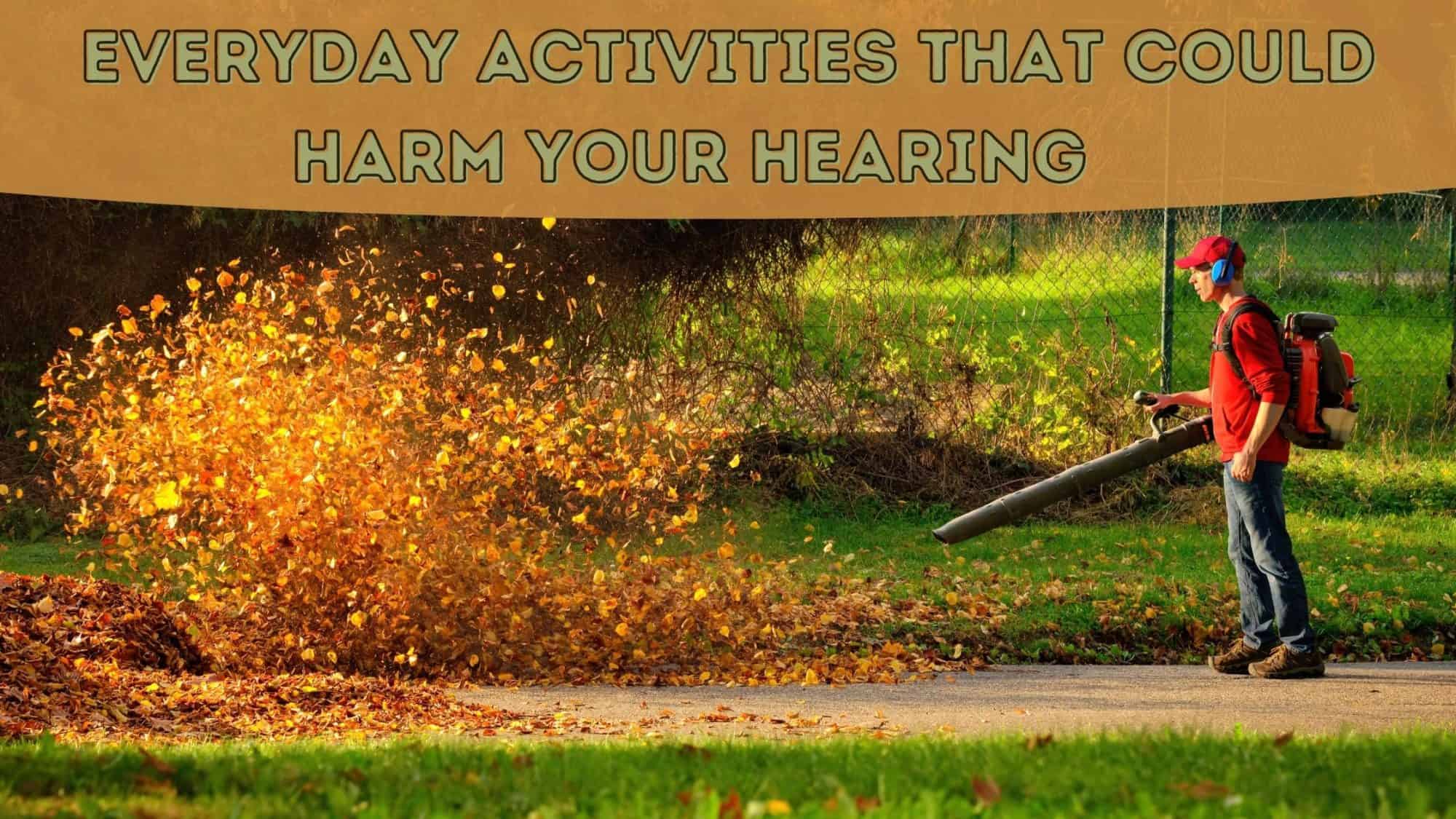- Everyday Objects That Can Cause Hearing Loss - May 5, 2024
- The Impact of Smoking and Alcohol on Hearing: Breaking Down the Risks - April 28, 2024
- The Future of Hearing Health Research: Promising Breakthroughs - April 18, 2024
Hearing loss affects nearly 48 million people in the United States today. Although age-related hearing loss is likely to reduce our hearing capacity at some stage in our lives, noise-induced hearing loss can affect people long before picking up their social security check.
Let’s look closer at noise-induced hearing loss, some of the most common causes, and what we can do to protect ourselves.
Excessive noise
The ears experience sound, but the brain processes it. When a sound is too loud, it can harm or destroy the tiny hair cells in our inner ear, tasked with picking up sound waves and sending them to the brain for processing.
Sound is measured in decibels, and any sound louder than 85 decibels will permanently impair our hearing. It is not only the frequency of sound that counts but also the amount of exposure. A low level of harmful sound can gradually decay our hearing for several years, but as the decibel level increases, our hair cells could be damaged in minutes.
Everyday sources of hazardous noise
Using earbuds
Many individuals use headphones at some point during the day, but you might be unaware that if these devices are not used properly, hearing may be permanently impaired. Personal media devices can comfortably exceed decibel levels of 106 decibels, far above the safe listening range. With endless streaming now a reality through unlimited data and the internet, people listen for more extended periods than ever before, raising the risk of a permanent hearing loss earlier in life.
Bars and restaurants
While not many of us are going to bars and restaurants right now, the damage of those places to our ears may still be felt.
Many of these establishments have loud music playing in the background, contributing to the ambiance and creating a pleasant atmosphere. When a group of people gets together to chat, they usually have to speak over the music to be understood.
The more popular a restaurant or bar becomes, the more customers will be vying for sonic space. A long dinner or night out can expose us to repeated volumes high enough to cause hearing loss, and those who work in these environments are especially vulnerable.
Home maintenance projects
From weed-whacking to leaf blowing, almost all home maintenance projects seem to require exposure to loud machines for extended periods. The machine of a lawnmower is around 90dB, which means damage to the ears could be felt within hours of exposure. A leaf blower is even louder, clocking in from 95 to 115 decibels. As you can see, home maintenance can be dangerous in several ways!
Protecting your hearing
Noise-induced hearing loss is, thankfully, avoidable. You’ll stand the best chance of protecting your hearing into old age with these guidelines:
- Invest in some earplugs. Put in a pair of earplugs if you’re in a noisy environment to protect your ears. Check to see if you’ve put them correctly and if they’re snug in your ear canal. If you work on a noisy construction site or go to the shooting range, you can wear earmuffs. These build a more protective seal around your head, protecting your hearing.
- Avoid noise. At future concerts or sporting events, stand or sit farther away from the loudspeakers. Step outside and take a break if you’ve been exposed for more than an hour. Before returning inside, take a few minutes to rest your ears.
- Stay informed about the noise around you. To test the sound level at concerts, sporting events, theaters, or bars, download a decibel reader app to your smartphone.
Do you have problems hearing in noisy environments? Perhaps you’ve been missing your alarm clock or not hearing your phone ring. If you notice any hearing loss symptoms, come and visit us for a hearing test. It won’t be easy to face up to your hearing issues, but we’ll provide clarity on your hearing health. Should you require treatment, we’ll show you how hearing aids can help you understand conversations in noisy environments.

